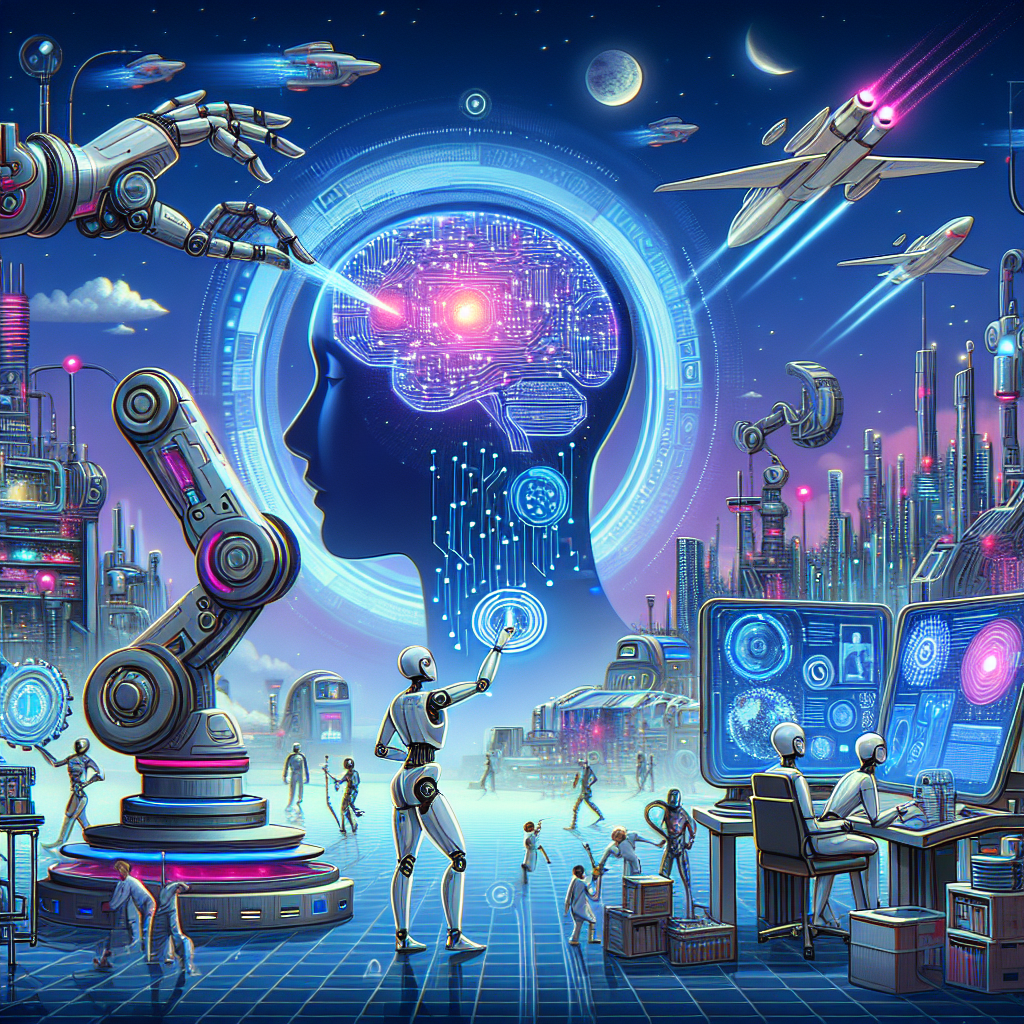The Future of AI: How AGI is Revolutionizing Technology
Artificial intelligence (AI) has been a hot topic in the tech world for years, but recent advancements in the field have brought us closer than ever to achieving artificial general intelligence (AGI). AGI is the next step in AI development, where machines are able to perform any intellectual task that a human can do. This revolutionary technology has the potential to completely transform the way we live and work, from healthcare and transportation to entertainment and education.
In this article, we will explore the current state of AI technology, the potential impact of AGI on society, and the challenges and opportunities that come with it. We will also discuss some frequently asked questions about AGI and its implications for the future.
The Current State of AI Technology
AI technology has come a long way since its inception in the 1950s. Today, we see AI systems in a wide range of applications, from self-driving cars and virtual assistants to facial recognition and recommendation algorithms. These systems are designed to perform specific tasks, such as recognizing patterns in data or making decisions based on predefined rules.
While these narrow AI systems are impressive in their own right, they are limited in their capabilities. They are only able to perform the tasks they were designed for and cannot adapt to new situations or learn new tasks on their own. This is where AGI comes in.
AGI aims to create machines that can think and learn like humans. These machines will be able to understand complex concepts, reason through problems, and adapt to new environments. They will be able to learn from experience, make decisions based on incomplete information, and even come up with creative solutions to problems.
The Potential Impact of AGI on Society
The development of AGI has the potential to completely revolutionize society in ways we can hardly imagine. From healthcare and education to transportation and entertainment, AGI has the potential to transform every aspect of our lives.
In healthcare, AGI could help doctors diagnose diseases more accurately and efficiently, leading to better outcomes for patients. It could also help researchers discover new treatments and therapies faster than ever before. In education, AGI could personalize learning experiences for students, helping them reach their full potential. It could also assist teachers in developing new and innovative teaching methods.
In transportation, AGI could revolutionize the way we travel, making transportation safer, more efficient, and more sustainable. Self-driving cars, trucks, and buses could reduce traffic accidents and congestion, while drones could deliver packages and goods more quickly and efficiently. In entertainment, AGI could create new and immersive experiences for users, from virtual reality games to interactive storytelling.
Challenges and Opportunities
While the potential benefits of AGI are vast, there are also challenges that come with its development. One of the biggest challenges is ensuring that AGI systems are safe and reliable. With the ability to think and learn like humans, AGI systems could potentially make mistakes or act in unpredictable ways. This raises concerns about the ethical implications of AGI, such as bias, privacy, and accountability.
Another challenge is the potential impact of AGI on the job market. As machines become more intelligent and capable, they may be able to perform tasks that were previously done by humans. This could lead to job displacement and economic disruption, particularly in industries that rely on manual labor or routine tasks.
Despite these challenges, there are also opportunities that come with AGI. For example, AGI could help us solve some of the world’s most pressing problems, such as climate change, poverty, and disease. It could also create new opportunities for innovation and economic growth, leading to a more prosperous and sustainable future.
FAQs
1. What is the difference between AI and AGI?
AI refers to machines that can perform specific tasks, such as recognizing patterns in data or making decisions based on predefined rules. AGI, on the other hand, aims to create machines that can think and learn like humans, with the ability to understand complex concepts, reason through problems, and adapt to new environments.
2. How close are we to achieving AGI?
While we have made significant advancements in AI technology in recent years, we are still a long way from achieving AGI. Researchers are working on developing algorithms and systems that can mimic human intelligence, but there are still many challenges to overcome before we reach that goal.
3. What are some potential applications of AGI?
AGI has the potential to revolutionize a wide range of industries, from healthcare and education to transportation and entertainment. It could help doctors diagnose diseases more accurately, personalize learning experiences for students, revolutionize the way we travel, and create new and immersive entertainment experiences for users.
4. What are the ethical implications of AGI?
There are many ethical implications of AGI, such as bias, privacy, and accountability. As machines become more intelligent and capable, they may make mistakes or act in unpredictable ways, raising concerns about how to ensure that AGI systems are safe and reliable.
5. How will AGI impact the job market?
AGI has the potential to disrupt the job market by displacing workers in industries that rely on manual labor or routine tasks. While this could lead to job displacement and economic disruption, it could also create new opportunities for innovation and economic growth in other industries.
In conclusion, the development of AGI has the potential to completely transform the way we live and work, from healthcare and education to transportation and entertainment. While there are challenges and opportunities that come with AGI, the future looks bright for this revolutionary technology. By working together to address the ethical implications and ensure the safety and reliability of AGI systems, we can harness the full potential of this groundbreaking technology for the benefit of society.

